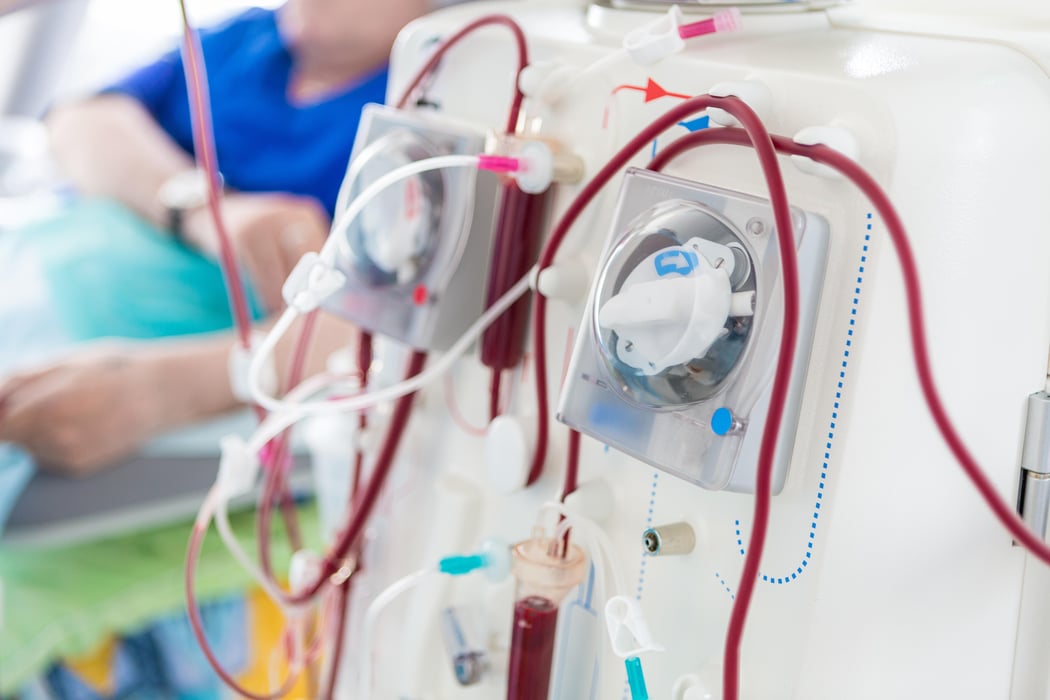Vaccine Rollout Linked to Drop in Severe COVID-19 in Dialysis Patients

MONDAY, Feb. 28, 2022 (HealthDay News) -- The incidence of severe COVID-19 infections was lower than expected among dialysis patients from the beginning of vaccine rollout; and antibody titers against the SARS-CoV-2 spike protein decrease substantially within the six months after COVID-19 vaccination in patients receiving maintenance dialysis, according to two studies published online Feb. 10 in the Clinical Journal of the American Society of Nephrology.
Khalil El Karoui, M.D., Ph.D., from the Henri Mondor Hospital in Créteil, France, and colleagues estimated the association between vaccine exposure and severe COVID-19 infection in dialysis patients versus the general population. The researchers found that the incidence of severe infections was approximately proportional in dialysis patients versus the general population during the first wave. During the second wave, there was a lower relative incidence for dialysis patients, suggesting an effect for prevention measures. From the beginning of vaccine rollout, the incidence in dialysis patients was lower than predictions based on the first and second waves, with incidence rate ratios of 0.37 and 0.50 for vaccine exposure in dialysis patients and per 10 percent increase in vaccine coverage in the same-aged general population, respectively.
Caroline M. Hsu, M.D., from Tufts Medical Center in Boston, and colleagues conducted a retrospective cohort study including 1,870 patients on maintenance dialysis who received a complete COVID-19 vaccine series, including 1,569 without prior COVID-19. The researchers found declines in antibody titers over time for patients without prior COVID-19. The shortest and longest time to loss of seroresponse was seen for recipients of the Ad26.COV2.S and mRNA-1273 vaccines, respectively. There was an association seen for maximum titer reached in the first two months after full vaccination with durability of the anti-spike immunoglobulin G seroresponse.
"As we continue to learn about the effects of COVID-19 on the dialysis population and the real-world effectiveness of different mitigation strategies, we must continue to adapt our approach to protect this vulnerable population as best as possible," write the authors of an accompanying editorial.
Several authors from both studies and one author from the editorial disclosed financial ties to pharmaceutical companies.
Related Posts
Pope Francis Leaves Hospital 9 Days After Surgery
FRIDAY, June 16, 2023 (HealthDay News) -- Pope Francis is now “better than...
Una buena atención de final de vida está fuera del alcance de muchos residentes negros de hogares de ancianos
MARTES, 8 de marzo de 2022 (HealthDay News) -- La atención paliativa puede ser...
Cancer Can Take Financial Toll on a Survivors’ Kids: Study
FRIDAY, June 23, 2023 (HealthDay News) -- Cancer affects families in numerous...
